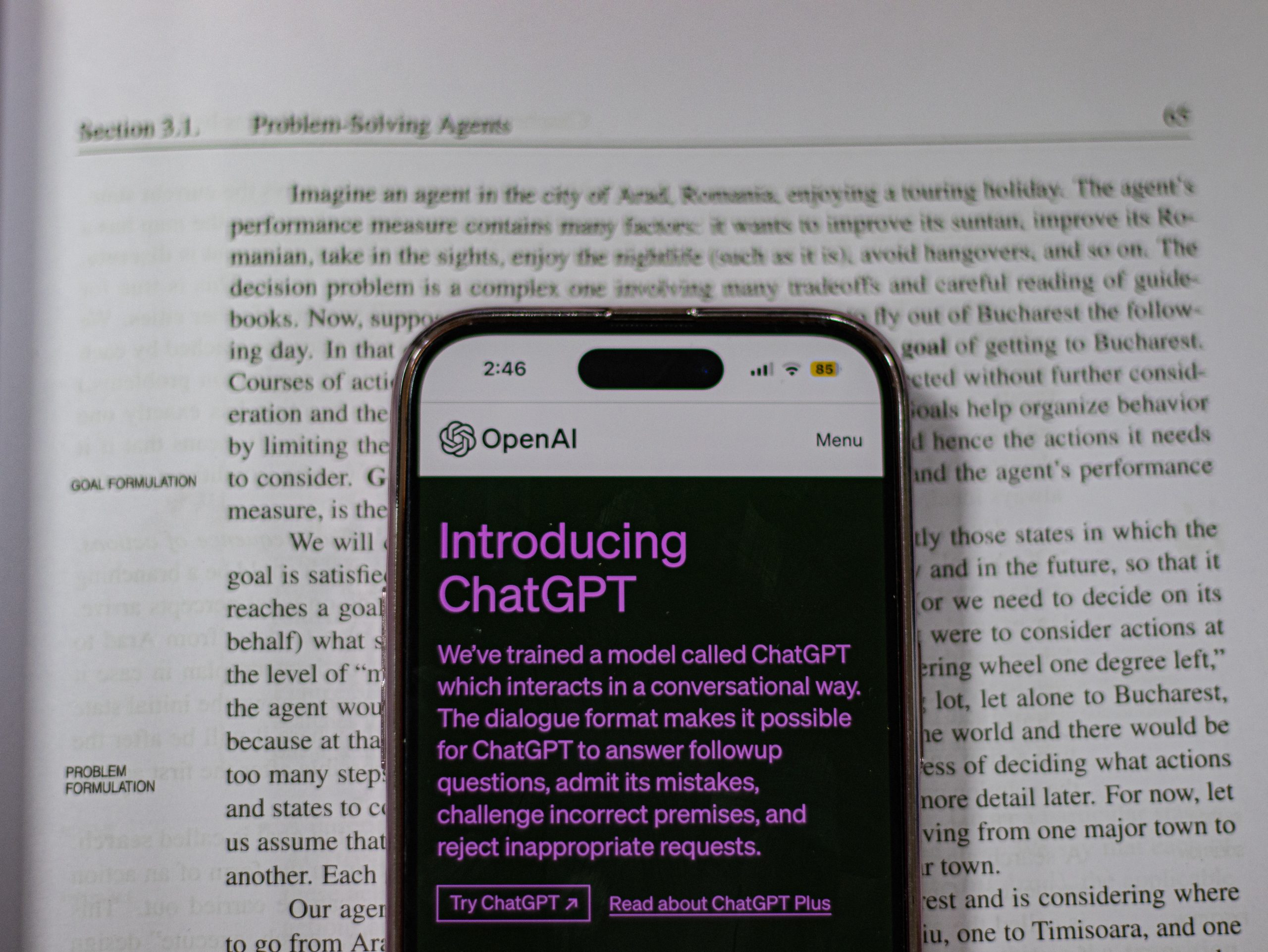EdTech companies are constantly introducing new ideas to enhance the learning process. They leverage various technologies such as blockchain, cloud computing, gamification, Big Data, and the Internet of Things. Nonetheless, one of the most impactful is artificial intelligence.
In 2024, 67% of EdTech startups are integrating AI into their products, making this technology a key driver in the evolution of the education industry.
At WeSoftYou, we specialize in implementing AI software in EdTech. In this article, we want to share our perspective on how artificial intelligence is transforming education. We also provide a curated list of top AI EdTech companies that are already making waves in the market.
Understanding the Intersection of EdTech and AI
Before delving into the applications of AI in EdTech, let’s first define what exactly AI and EdTech encompass. AI refers to the development of computer systems capable of performing tasks that usually require human intelligence, such as speech recognition, problem-solving, and decision-making. On the other hand, EdTech encompasses the use of technology in education to enhance the learning process.
Types of AI Solutions for EdTech
The use of AI in education has come a long way since its inception. Initially, AI in EdTech was restricted to simple tasks like grading multiple-choice exams. However, with advancements in machine learning algorithms and natural language processing, AI is now capable of providing personalized learning experiences and adapting to the individual needs of students.
Thanks to this intersection, many innovative educational solutions appeared on the market like Learning Management Systems.
Adaptive Learning Platforms
They use AI algorithms to analyze students’ learning patterns and behaviors, allowing educators to tailor lesson plans to meet each student’s specific needs. By providing personalized feedback and adapting the curriculum in real-time, AI-powered adaptive learning platforms can significantly improve student outcomes and engagement.
Virtual Tutors and Chatbots
Such advancements offer round-the-clock assistance to students. They can answer questions, provide explanations, and offer guidance on assignments, creating a more interactive and supportive learning environment outside of traditional classroom settings.
Intelligent Content Creation Platforms
AI-powered tools can generate content such as digital textbooks, study guides, and interactive exercises. These tools can break down complex subjects into more digestible pieces, use multimedia elements like videos and simulations to enhance understanding, and even create adaptive tests that adjust based on student performance. This can make learning more engaging and accessible for all students.
Gamification and Engagement Tools
EdTech solutions incorporating gamification use AI to create engaging, game-like learning experiences. These tools can include rewards, leaderboards, and challenges that motivate students to learn. AI ensures that the content and difficulty level are tailored to each student’s abilities, making learning fun and effective.
Language Learning and Translation Platforms
AI-driven language learning apps offer personalized lessons that adapt to the user’s progress. These platforms can include speech recognition technology to provide real-time feedback on pronunciation and grammar. Additionally, AI translation tools can help students understand content in different languages, breaking down language barriers in education.
Collaborative Learning Platforms
AI can enhance collaborative learning by forming study groups based on students’ skills and learning styles. These platforms can monitor group interactions and provide insights to educators on how to improve collaboration and ensure that all group members are contributing effectively. This fosters a more cooperative and engaging learning environment.
As technology continues to advance, the possibilities for AI in EdTech are endless, promising a future where education is more accessible, engaging, and tailored to individual learners’ needs.
The Impact of AI on Teachers and Students
Artificial Intelligence (AI) has revolutionized the education sector by offering innovative solutions that cater to both teachers and students. The integration of AI technology in classrooms has transformed traditional teaching methods, paving the way for a more interactive and personalized learning experience.
AI as a Tool for Teachers
AI-powered tools can automate administrative tasks such as grading and data analysis, allowing teachers to focus on what matters most – teaching. By freeing up time and reducing the burden of administrative work, teachers can dedicate more attention to individual students and provide personalized guidance.
Moreover, AI can assist teachers in identifying learning gaps and tailoring lesson plans to meet the specific needs of each student. Through data-driven insights provided by AI algorithms, educators can create targeted interventions to support struggling students and challenge advanced learners, ultimately fostering a more inclusive and effective learning environment.
Enhancing Student Engagement with AI
AI offers interactive and immersive learning experiences, enhancing student engagement and motivation. For instance, virtual reality (VR) and augmented reality (AR) technologies powered by AI can provide students with realistic simulations and visualizations, making complex concepts more tangible and easier to grasp. Such immersive experiences make the learning process enjoyable and foster a deeper understanding of the subject matter.
Furthermore, AI-driven adaptive learning platforms can analyze students’ progress in real-time and adjust the difficulty level of tasks accordingly. This personalized approach to learning ensures that each student receives individualized support and challenges, leading to improved academic performance and a greater sense of accomplishment.
Challenges and Concerns in Implementing AI in EdTech
While AI in EdTech holds immense potential, there are challenges and concerns that need to be addressed to ensure its successful implementation.
Ethical Considerations of AI in Education
As AI becomes more integrated into classrooms, ethical considerations such as data privacy and bias become crucial. Educators and policymakers need to take steps to ensure that AI systems are secure, transparent, and respect individuals’ privacy. Additionally, efforts should be made to address any potential biases that AI algorithms may introduce.
Furthermore, fostering digital literacy among students and teachers is essential to empower them to critically engage with AI technologies. By promoting an understanding of how AI works and its implications, educational institutions can help individuals make informed decisions about the use of AI in learning settings.
Overcoming Technical Barriers
The successful integration of AI in EdTech requires robust and reliable technical infrastructure. From our experience as a software development company with a proven track record, we understand the importance of building scalable and secure systems that can handle the influx of data and ensure smooth operations. Collaborating with experienced software development partners like WeSoftYou can assist educational institutions in overcoming technical barriers and making the most of AI in their EdTech initiatives.
Moreover, continuous research and development are essential to keep pace with the rapidly evolving field of AI in education. By investing in ongoing innovation and staying updated on the latest advancements in AI technology, educational stakeholders can leverage AI tools effectively to enhance teaching and learning outcomes.
Top 10 AI EdTech Startups to Know
To better understand how AI influence EdTech, let’s explore some of the most prominent startups in this field:
Luca.ai
Luca.ai is an EdTech company using AI to help children overcome dyslexia through personalized learning experiences. Developed with the expertise and support of our team of WeSoftYou, it utilizes advanced AI algorithms to analyze student performance and provide tailored content that meets individual learning needs. The platform aims to revolutionize how students interact with educational materials by adapting to their unique learning styles and progress, thereby maximizing engagement and improving outcomes. With its robust data analysis capabilities, Luca.ai offers educators valuable insights into student performance, helping them to make informed decisions and provide targeted support.
Founded in: 2023
Founder: Scott Sosso
Last Funding Type: Seed
Headquarters: Gibsonia, Pennsylvania, United States
Types of services: Personalized learning paths, real-time feedback and content adaptation, data-driven insights for parents, interactive learning modules
Total funding amount: $250K
Knewton
Knewton is a pioneer in adaptive learning technology that uses generative AI in EdTech solutions, allowing them to customize educational content for individual students. By leveraging data on student performance, Knewton’s system adjusts lessons in real-time to optimize learning outcomes. This personalization ensures that each student receives instruction that is best suited to their current level of understanding, thereby enhancing their learning experience. Knewton’s technology is widely used by educational institutions and publishers, making a significant impact on how educational content is delivered and consumed.
Founded in: 2008
Founder: Jose Ferreira
Last Funding Type: Debt Financing
Headquarters: New York, United States
Types of services: Adaptive learning technology, real-time lesson adjustment, personalized educational content, data analytics for educators
Total funding amount: $182.3M
Cognii
Cognii is a knowledge-based AI EdTech startup that specializes in virtual learning assistants that engage students through conversational tutoring and assessment. Their technology focuses on developing critical thinking skills by allowing students to interact with AI tutors that provide personalized feedback and guidance. Cognii’s platform supports open-ended questions and dialogue, promoting deeper understanding and retention of material. This approach not only helps students learn more effectively but also prepares them for complex problem-solving in real-world scenarios.
Founded in: 2013
Founder: Dee Kanejiya
Last Funding Type: Grant
Headquarters: Boston, Massachusetts, United States
Types of services: AI-based virtual learning assistants, conversational tutoring, personalized feedback and assessment, critical thinking skill development
Total funding amount: $1.1M
Century Tech
Century Tech combines artificial intelligence with cognitive neuroscience to create a personalized learning platform that adapts to each student’s needs. The company’s technology analyzes vast amounts of data to tailor educational content and provide actionable insights to educators. By integrating principles from cognitive science, Century Tech’s platform helps students learn more efficiently and retain information longer. This holistic approach addresses both the academic and cognitive aspects of learning, making it a powerful tool for educators and students alike.
Founded in: 2015
Founder: Priya Lakhani
Last Funding Type: Series A
Headquarters: London, England, United Kingdom
Types of services: Personalized learning platform, data analytics, cognitive science integration, actionable insights for educators
Total funding amount: $25.8M
Querium
Querium focuses on delivering AI-driven tutoring for STEM (Science, Technology, Engineering, and Mathematics) subjects. Their platform provides personalized guidance and instant feedback to help students master complex topics. Querium’s technology is designed to adapt to each student’s learning pace and style, making challenging subjects more accessible and engaging. The company’s emphasis on STEM education is particularly relevant in today’s job market, where proficiency in these areas is increasingly in demand.
Founded in: 2013
Founders: Kent Fuka, Patti Smith
Last Funding Type: Series B
Headquarters: Austin, Texas, United States
Types of services: AI-driven STEM tutoring, personalized guidance, instant feedback, adaptive learning technology
Total funding amount: $6.2M
Squirrel AI Learning
Squirrel AI Learning offers an adaptive learning platform that personalizes education for K-12 students. Utilizing advanced AI, the platform dynamically adjusts the curriculum based on each student’s learning progress and needs. Squirrel AI Learning aims to provide a highly customized educational experience that helps students achieve their full potential. By continuously monitoring and adapting to student performance, the platform ensures that each learner receives the support and challenges they need to succeed.
Founded in: 2014
Founders: Derek Li, Jason Wei Zhou, Joleen Liang, Wei Cui
Last Funding Type: Series C
Headquarters: Shanghai, China
Types of services: Adaptive learning platform, personalized K-12 education, dynamic curriculum adjustment, performance monitoring and support
Total funding amount: $190.4M
Kidaptive
Kidaptive provides an adaptive learning platform designed for early childhood education. Their technology uses AI to create personalized educational experiences that evolve with each child’s learning progress. Kidaptive’s approach combines engaging multimedia content with data-driven insights to support cognitive and emotional development in young learners. By focusing on early education, Kidaptive aims to lay a strong foundation for lifelong learning and success.
Founded in: 2012
Founders: Dylan Arena, P.J. Gunsagar
Last Funding Type: Series C
Headquarters: Mountain View, California, United States
Types of services: Adaptive learning platform, early childhood education, personalized educational experiences, multimedia content, data-driven insights
Total funding amount: $38.7M
Riiid
Riiid is known as one of the most notable EdTech companies using AI in test preparation and personalized learning. The company’s platform uses machine learning to analyze student data and deliver customized study plans that optimize learning outcomes. Riiid’s technology is particularly effective in preparing students for standardized tests, offering targeted practice and feedback based on individual performance. The company’s innovative approach to education has garnered attention for its ability to significantly improve test scores and learning efficiency.
Founded in: 2014
Founders: Jaewe Heo, Young-Jun Jang
Last Funding Type: Series E
Headquarters: Seoul, South Korea
Types of services: AI-powered test preparation, personalized study plans, machine learning analytics, targeted practice and feedback
Total funding amount: $256.7M
DreamBox Learning
DreamBox Learning offers an adaptive math learning platform for K-8 students. The company’s technology personalizes instruction by adjusting to each student’s unique learning style and pace. DreamBox Learning’s platform provides a rich, interactive experience that helps students develop a strong foundation in mathematics. By offering real-time feedback and adaptive challenges, DreamBox Learning aims to make math education more engaging and effective.
Founded in: 2004
Founder: Lou Gray
Last Funding Type: Series C
Headquarters: Bellevue, Washington, United States
Types of services: Adaptive math learning platform, personalized instruction, interactive learning experience, real-time feedback, adaptive challenges
Total funding amount: $175.6M
Udacity
Udacity is a prominent online education platform known for its industry-focused “Nanodegree” programs. The platform collaborates with leading tech companies to provide high-quality, job-relevant education in areas such as programming, data science, artificial intelligence, and digital marketing. Udacity’s approach emphasizes practical, project-based learning, where students work on real-world projects and gain skills that are directly applicable in the workplace. The platform uses AI and machine learning to offer personalized learning paths, real-time feedback, and career support, helping students to acquire skills that are in high demand across various industries.
Founded in: 2011
Founders: David Stavens, Mike Sokolsky, Sebastian Thrun
Last Funding Type: Venture – Series Unknown
Headquarters: Mountain View, California, United States
Types of services: Industry-focused Nanodegree programs, project-based learning, real-world projects, personalized learning paths, AI-driven feedback, career support and job placement assistance
Total funding amount: $240M
AI for EdTech: What the Future Holds
As technology continues to evolve at an unprecedented pace, the future of AI in EdTech holds exciting prospects. The intersection of artificial intelligence (AI) and educational technology (EdTech) is paving the way for innovative approaches to teaching and learning.
The integration of AI in EdTech is not just a trend but a transformative force that is revolutionizing the traditional education landscape. With AI algorithms becoming more sophisticated, the potential applications in education are expanding rapidly, offering personalized learning experiences and data-driven insights.
Emerging Trends in AI and Education
New breakthroughs in AI and machine learning algorithms are constantly reshaping the field of education. From intelligent tutoring systems that can provide real-time feedback to predictive analytics that assist educators in identifying struggling students proactively, the possibilities are seemingly limitless. By staying updated with emerging trends, educational institutions can leverage these advancements to create more effective and inclusive learning environments.
Moreover, the integration of AI in EdTech is not limited to classroom settings. Virtual reality (VR) and augmented reality (AR) technologies are being combined with AI to create immersive learning experiences that transcend traditional boundaries. Students can now explore historical events, scientific concepts, and complex theories in interactive and engaging ways.
Predictions for AI in Future Classrooms
The integration of AI in EdTech will continue to gain momentum, transforming the way education is delivered and experienced. In the not-so-distant future, AI-powered virtual assistants may become common in the classroom, facilitating communication, collaboration, and personalized learning. Additionally, greater emphasis will be placed on developing AI systems that promote creativity, critical thinking, and problem-solving skills.
Wrapping Up
As AI continues to advance, it is imperative for educational institutions to embrace the possibilities it presents. By marrying AI with EdTech, personalized and adaptive learning experiences can be delivered, benefiting both students and educators alike. Explore the potential of AI in EdTech with WeSoftYou and revolutionize the future of education.
Ready to elevate your educational offerings with the power of AI? At WeSoftYou, we specialize in crafting custom software solutions that bring your vision to life. Our expertise in developing Minimum Viable Products (MVPs), web, and mobile applications, combined with our commitment to quality and top-tier talent, positions us to deliver exceptional results. Join the ranks of satisfied clients who have experienced the WeSoftYou difference.
Contact us to get a quote and take the first step towards transforming the educational experience with AI.
FAQs
AI cannot replace teachers but can significantly enhance their roles. AI excels in automating repetitive tasks, such as grading and administrative duties, which frees up teachers to focus on interactive, creative, and empathetic aspects of teaching. While AI can provide personalized learning experiences and support, the human elements of mentorship, motivation, and understanding complex social dynamics in the classroom remain crucial and irreplaceable.
Yes, there are several concerns about AI in education. Key issues include data privacy and security, as AI systems require access to sensitive student information. There’s also the risk of reinforcing existing biases if AI systems are trained on biased data, which could lead to unequal learning opportunities. Additionally, over-reliance on AI might undermine the human connection and critical thinking skills that are essential for holistic education.
Educators and institutions can prepare for AI integration by investing in professional development to understand and effectively use AI tools. Starting with pilot programs can help test and refine AI applications before full-scale implementation. Collaboration with AI experts is vital for selecting appropriate tools and ensuring ethical use. Additionally, establishing clear guidelines for data privacy and security will help address potential concerns and build trust in AI technologies.
Data is fundamental to AI in EdTech. AI systems rely on large volumes of data to train algorithms, allowing them to recognize patterns and make accurate predictions. High-quality, diverse data ensures that AI applications provide relevant and effective educational support. Data helps personalize learning experiences by adapting content to individual student needs and tracking progress. However, managing and protecting this data is crucial to maintaining privacy and ensuring ethical use.





















